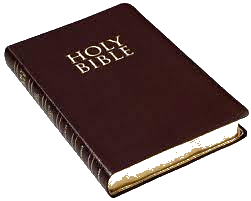Pages: 1 ... 4 5 [ 6] 7 8 9 Go Down
 Author
Topic: The Nature of Fallen Man (Read 17240 times)
Author
Topic: The Nature of Fallen Man (Read 17240 times)
0 Members and 1 Guest are viewing this topic.
Pages: 1 ... 4 5 [ 6] 7 8 9 Go Up
|
Is free will a failed concept?
by Fenris
Today at 11:08:39 AM
|
Watcha doing?
by Athanasius
Today at 07:57:36 AM
|
Is Answers in Genesis becoming a cult?
by Fenris
Yesterday at 12:14:10 PM
|
The Jews will be kept safe in the Great Tribulation
by Fenris
Yesterday at 11:42:51 AM
|
Better known as
by Sojourner
April 01, 2025, 11:09:34 PM
|
The ECF and theosis
by watchinginawe
April 01, 2025, 10:04:56 PM
|
Gog's endtime construction?
by Fenris
March 29, 2025, 08:59:05 PM
|
How to reconcile?
by shepherdsword
March 29, 2025, 01:11:46 PM
|
I was a Moderator here once before
by shepherdsword
March 29, 2025, 01:08:03 PM
|
Prayer for my wife
by ProDeo
March 29, 2025, 04:09:58 AM
|
NEW, davy from USA
by IMINXTC
March 27, 2025, 10:24:51 PM
|
The seven seals and how they relate to Matthew 24
by shepherdsword
March 25, 2025, 01:11:33 PM
|
Ash Wednesday / Lent
by Fenris
March 23, 2025, 11:06:23 AM
|
Blessed Are The Barren...
by Athanasius
March 20, 2025, 04:25:09 AM
|
US Presidental Election
by RabbiKnife
March 18, 2025, 08:02:52 PM
|
Plot holes
by Fenris
March 18, 2025, 04:51:14 PM
|
Zechariah 12
by Fenris
March 18, 2025, 11:52:35 AM
|
How Do I Know God Exists?
by davy
March 18, 2025, 12:05:31 AM
|
A big shout out to all of the old (and new) gang
by Kingfisher
March 17, 2025, 08:33:21 AM
|
Looking at Col. 2:16
by watchinginawe
March 16, 2025, 06:40:06 PM
|
|
|





